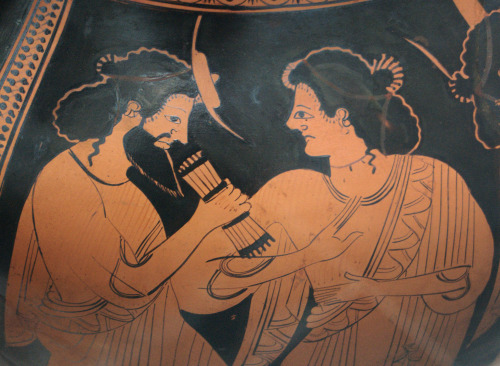Allaintoin

More Posts from Allaintoin and Others


Hermes and his mother Maia (part of a larger scene showing an assembly of the gods). Detail from Side B of an Attic red-figure belly-amphora, attributed to the Nikoxenos-Painter; ca. 500 BCE. Now in the Staatliche Antikensammlungen, Munich.

Behold the collection of some of the images of Cosmic Objects we have Captured so far with our sophisticated space telescopes. Keep in mind that the first telescope was made in 1608.
This implies that in less than five centuries, we advanced from inventing a local telescope to building powerful space telescopes that captured these images and unveils the universe to humankind.
NASA's James Webb Space Telescope, which is the most powerful telescope ever built has unveiled more mindblowing detailed images. I will be revealing some of these fascinating iimages soon. So f0ll0w Future Worlds to see them
Credit: NASA

Trees in Baran-Eli, 1906, Konstantin Bogaevsky

The Penitent Mary Magdalene, 1873, Arnold Bocklin
Medium: oil,canvas





SOCEMA Grégoire, 1952. An experimental gas turbine-powered, highly aerodynamic coupé created by French automobile engineer Jean-Albert Gregoire. Powered by a single rotor kerosene-fuelled ‘cematurbo’ engine developing 100 bhp at a 25,000 rpm. The lightweight aluminium frame and bodywork and the aerodynamic shape – a Cx of just 0.19 – enabled a 200km/h top speed which placed it among the fastest cars on the planet in 1952. The project went no further than a single prototype due to the high cost of construction and braking issues; a gas turbine doesn't generate any engine braking effect upon deceleration.
photographs by Perico001 on Flickr

Tagesthemen , Daily topics - Harald Duwe , 1982
German , 1926 - 1984
Oil on canvas, 120 x 100 cm.

The Space Shuttle Atlantis seen in silhouette during solar transit, May 12, 2009.
(NASA)

Arturo Pacheco Altamirano - Boca de Buenos Aires (1955)
